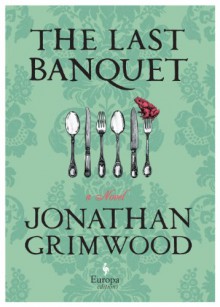Set against the backdrop of the Enlightenment, the delectable decadence of Versailles, and the French Revolution, The Last Banquet is an intimate epic that tells the story of one man’s quest to know the world through its many and marvelous flavors. Jean-Marie d’Aumout will try anything once, with...
show more
Set against the backdrop of the Enlightenment, the delectable decadence of Versailles, and the French Revolution, The Last Banquet is an intimate epic that tells the story of one man’s quest to know the world through its many and marvelous flavors. Jean-Marie d’Aumout will try anything once, with consequences that are at times mouthwatering and at others fascinatingly macabre (Three Snake Bouillabaisse anyone? Or perhaps some pickled Wolf's Heart?). When he is not obsessively searching for a new taste d’Aumout is a fast friend, a loving husband, a doting father, and an imaginative lover. He befriends Ben Franklin, corresponds with the Marquis de Sade and Voltaire, becomes a favorite at Versailles, thwarts a peasant uprising, improves upon traditional French methods of contraception, plays an instrumental role in the Corsican War of Independence, and constructs France’s finest menagerie. But d’Aumout’s every adventurous turn is decided by his at times dark obsession to know all the world’s flavors before that world changes irreversibly. As gripping as Patrick Suskind’s Perfume, as gloriously ambitious as Daniel Kehlman’s Measuring the World, and as prize-worthy as Andrew Miller’s Pure, The Last Banquet is a hugely appealing novel about food and flavor, about the Age of Reason and the ages of man, and our obsessions and about how, if we manage to survive them, they can bequeath us wisdom and consolation in old age.
show less

